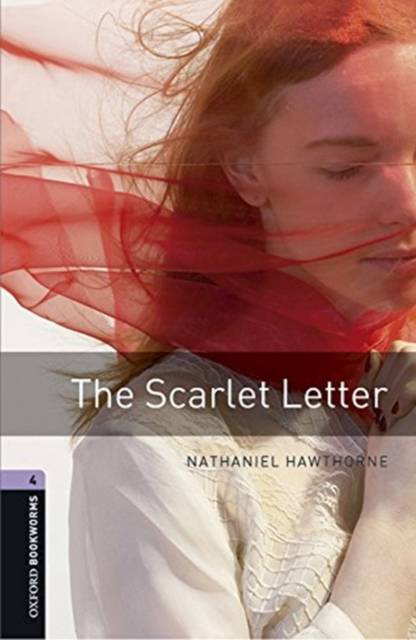
- Afhalen na 1 uur in een winkel met voorraad
- Gratis thuislevering in België vanaf € 30
- Ruim aanbod met 7 miljoen producten
- Afhalen na 1 uur in een winkel met voorraad
- Gratis thuislevering in België vanaf € 30
- Ruim aanbod met 7 miljoen producten
Zoeken
Omschrijving
"We dream in our waking moments, and walk in our sleep."
--- Nathaniel Hawthorne, The Scarlet Letter
The Scarlet Letter: A Romance is an 1850 work of fiction in a historical setting, written by Nathaniel Hawthorne, and is considered to be his best work. Set in 17th-century Puritan Boston, Massachusetts, during the years 1642 to 1649, it tells the story of Hester Prynne, who conceives a daughter through an affair and struggles to create a new life of repentance and dignity. Throughout the book, Hawthorne explores themes of legalism, sin, and guilt.
Critical response
On its publication, critic Evert Augustus Duyckinck, a friend of Hawthorne's, said he preferred the author's Washington Irving-like tales. Another friend, critic Edwin Percy Whipple, objected to the novel's "morbid intensity" with dense psychological details, writing that the book "is therefore apt to become, like Hawthorne, too painfully anatomical in his exhibition of them." Most literary critics praised the book but religious leaders took issue with the novel's subject matter. Orestes Brownson complained that Hawthorne did not understand Christianity, confession, and remorse. A review in The Church Review and Ecclesiastical Register concluded the author "perpetrates bad morals."
On the other hand, 20th-century writer D. H. Lawrence said that there could not be a more perfect work of the American imagination than The Scarlet Letter. Henry James once said of the novel, "It is beautiful, admirable, extraordinary; it has in the highest degree that merit which I have spoken of as the mark of Hawthorne's best things---an indefinable purity and lightness of conception...One can often return to it; it supports familiarity and has the inexhaustible charm and mystery of great works of art."
The book's immediate and lasting success are due to the way it addresses spiritual and moral issues from a uniquely American standpoint. In 1850, adultery was an extremely risque subject, but because Hawthorne had the support of the New England literary establishment, it passed easily into the realm of appropriate reading. It has been said that this work represents the height of Hawthorne's literary genius, dense with terse descriptions. It remains relevant for its philosophical and psychological depth, and continues to be read as a classic tale on a universal theme."
--- Nathaniel Hawthorne, The Scarlet Letter
The Scarlet Letter: A Romance is an 1850 work of fiction in a historical setting, written by Nathaniel Hawthorne, and is considered to be his best work. Set in 17th-century Puritan Boston, Massachusetts, during the years 1642 to 1649, it tells the story of Hester Prynne, who conceives a daughter through an affair and struggles to create a new life of repentance and dignity. Throughout the book, Hawthorne explores themes of legalism, sin, and guilt.
Critical response
On its publication, critic Evert Augustus Duyckinck, a friend of Hawthorne's, said he preferred the author's Washington Irving-like tales. Another friend, critic Edwin Percy Whipple, objected to the novel's "morbid intensity" with dense psychological details, writing that the book "is therefore apt to become, like Hawthorne, too painfully anatomical in his exhibition of them." Most literary critics praised the book but religious leaders took issue with the novel's subject matter. Orestes Brownson complained that Hawthorne did not understand Christianity, confession, and remorse. A review in The Church Review and Ecclesiastical Register concluded the author "perpetrates bad morals."
On the other hand, 20th-century writer D. H. Lawrence said that there could not be a more perfect work of the American imagination than The Scarlet Letter. Henry James once said of the novel, "It is beautiful, admirable, extraordinary; it has in the highest degree that merit which I have spoken of as the mark of Hawthorne's best things---an indefinable purity and lightness of conception...One can often return to it; it supports familiarity and has the inexhaustible charm and mystery of great works of art."
The book's immediate and lasting success are due to the way it addresses spiritual and moral issues from a uniquely American standpoint. In 1850, adultery was an extremely risque subject, but because Hawthorne had the support of the New England literary establishment, it passed easily into the realm of appropriate reading. It has been said that this work represents the height of Hawthorne's literary genius, dense with terse descriptions. It remains relevant for its philosophical and psychological depth, and continues to be read as a classic tale on a universal theme."
Specificaties
Betrokkenen
- Auteur(s):
- Uitgeverij:
Inhoud
- Taal:
- Engels
- Reeks:
Eigenschappen
- Productcode (EAN):
- 9780194621083
- Verschijningsdatum:
- 31/08/2018
- Uitvoering:
- Paperback
- Formaat:
- Trade paperback (VS)
- Afmetingen:
- 131 mm x 200 mm
- Gewicht:
- 108 g

Alleen bij Standaard Boekhandel
+ 52 punten op je klantenkaart van Standaard Boekhandel
Beoordelingen
We publiceren alleen reviews die voldoen aan de voorwaarden voor reviews. Bekijk onze voorwaarden voor reviews.











